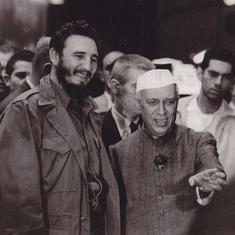I’m not convinced with the Badminton World Federation’s proposal to change the scoring system from 21 points and three games to 11 points and five games.
When I started playing, it was a 11-point system for women and 15 points for men, but you could get a point only off your own serve. Those matches used to get pretty long as the score never moved along. From a spectator’s point of view, it wasn’t very interesting as such. But there were chances of coming back from, say, 4-14 down and winning the game.
I also played the seven-points-five-games system, which I felt was too short. I remember playing the qualifying rounds of the All England Open which had three matches in a day. There, a seven-point game worked because the matches were short and fast. But when you get to the main draw it was only one match a day and that’s where the system failed.
Some players take a while to settle into their groove and if they lost 4-5 points in that process, the game was over if they dropped just two more points. The format wasn’t very interesting, nor attractive, with no scope for rallies.
I prefer the existing 21-point-three-game rally point system. Twenty-one is a decent number of points where you can actually see good badminton overall and there is also a scope for upsets.
Taking away the charm
I’m sure the new system can also produce surprise results but I feel the charm of the game will be lost. Badminton is a game based on skill, power, speed, endurance, agility and reflexes. When you get into the rallies, when you see the strokes being executed, that’s when it gets more interesting to watch. If there are no rallies happening at all, how will the matches be interesting?
If the objective is to reduce the length of matches, not every match goes on for one-and-a-half hours. There are matches that end in 20 minutes also. Badminton is not like football or any other sport where the match length is fixed, so there will be ups and downs. PV Sindhu has played some long finals in the last couple of years and no one can say they were not exciting.
Whether players like the new format or not depends on what kind of game they have. Some players like to play endurance-based games. For them, more the number of points in a game, the better it is. But then there are other players who want to finish points quicker and are at it from the word go. Such players would prefer this new format. If I was still playing, I would say the shorter the better. But if I had to talk as a spectator today, I would say a little longer is better.

If the BWF feels the 21-point system is not TV friendly, I’m sure there is a way to make it so. For example, why can’t you increase the number of breaks in a game to make space for more TV ads? We have one interval in a game right now after 11 points, so why not make it two – after every seven points?
The BWF also wants to reduce the warm-up time before a match. I don’t see how that will make much of a difference. I think they give two minutes to warm up so maybe they can reduce it to a minute – just so that the players can get a feel of the court. It won’t matter since the players have already had a hit on the warm-up courts, which are mandatory at big events.
Reducing the time taken for racket testing is also trivial – it’s only one or two strokes that you get to hit anyway, and it doesn’t happen in every match.
Regarding the time taken between points, the chair umpires anyway warn the players if they feel they are wasting too much time. If it happens again, they issue a card. I don’t think it is a hindrance.
Badminton is a very physically taxing game. Tennis matches can go on for five hours including the number of breaks in between but badminton is quick and you need some time to think.
I don’t see how reducing time between points is going to make any difference – it’s a matter of a few seconds. I can understand if a few minutes are lost but that’s not the case.
I don’t, however, mind reducing on-court coaching. When I started playing, there was no prompting allowed at all, whether it was from the coach or the spectators. That would be considered as a fault. Then, they started to allow coaching between games and now you can coach even during play. If you see today, players have become a bit more dependent on coaches because they get a helping hand during matches.
Whatever the BWF eventually does, I hope they ensure that the sport does not lose its charm because if that happens it will be quite a shame.
– As told to Jaideep Vaidya










